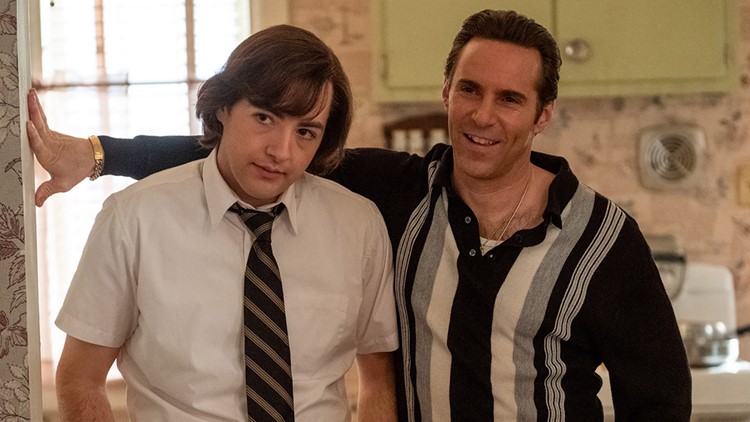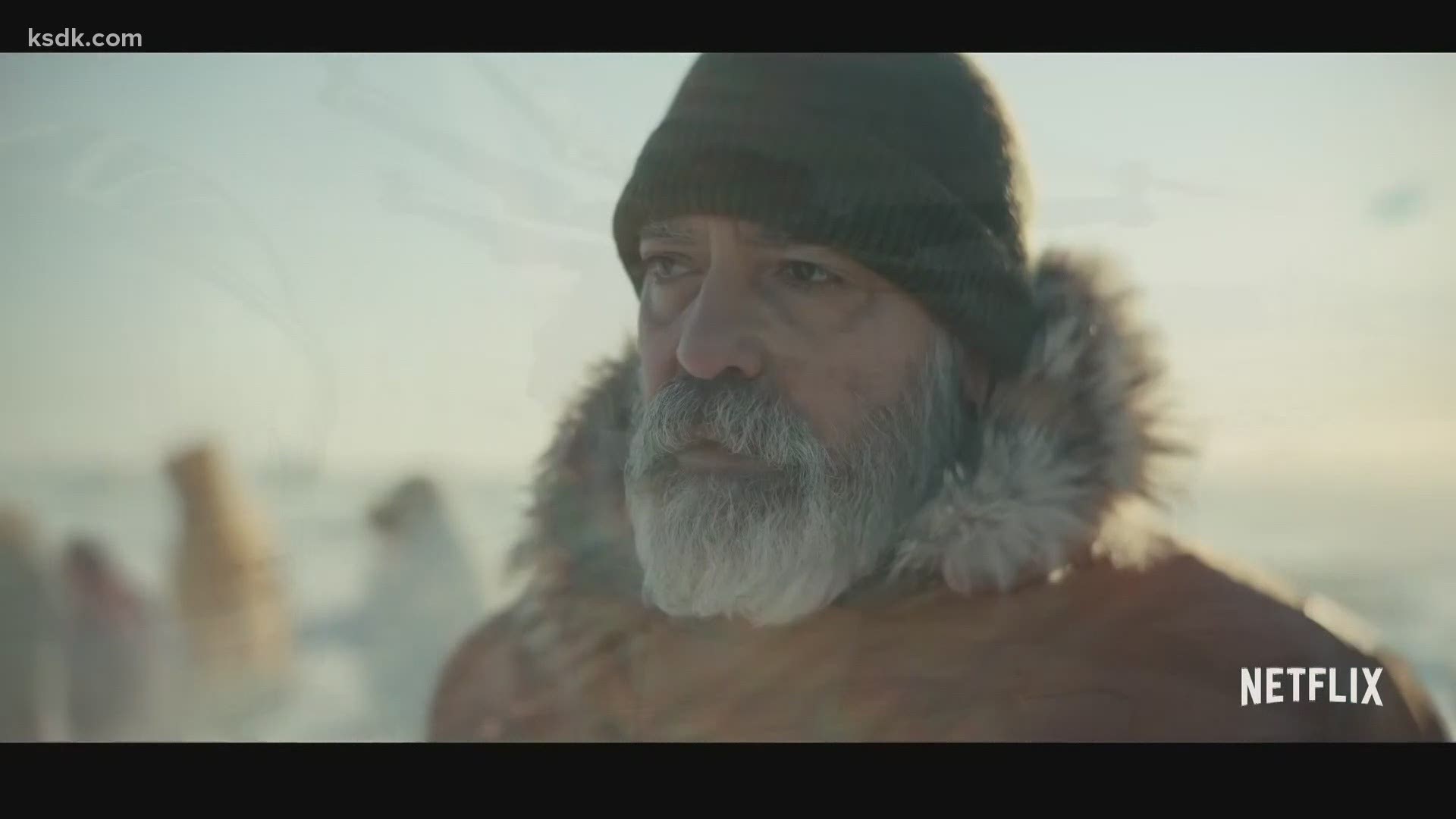ST. LOUIS — There isn't a "Sopranos" addict out there who hasn't spent the past 14 years wondering if there were any other stories left for David Chase to tell. Could he, the Mafia Godfather of television, bring the same characters back-along with a few key additions-and restore the magic of the beloved HBO series? Keep reading for the answer, but let's get something straight before you proceed.
This isn't a Tony Soprano origin tale; he isn't the Bruce Wayne of New Jersey who didn't have great parents and became a monster. That's not what "The Many Saints of Newark," the love child of Chase and "Sopranos" directing regular Alan Taylor, is after with its story. This new movie, available to see in theaters (do it!) or stream on HBO Max, carves out the indelible story of how Tony became Tony, or who gave him the biggest push into crime?
That guy is Dickie Moltisanti, played brilliantly by Alessandro Nivola. This is his movie and it's a very good one. Chase's aim and desire to return to the scene of Emmy-winning greatness is precise here: Show us the guy who created the Tony Soprano that we fell in love with, against all odds, 20+ years ago. If the television series was "Frankenstein," consider this the tale of his maker. That doesn't mean the film doesn't provide many much-needed references to original characters, reviving those fond memories of scenes while creating a little magic of its own.
The main spin of the rest of the plot revolves around the DiMeo crime syndicate and how its grip on New Jersey started to loosen in the 1960's with racial tension and riots. The divide between the established Italian-American crime families and the budding African-American-led mafia. Chase, who co-wrote the script with Lawrence Konner, doesn't exactly sidestep this subplot, breathing life into it by establishing a doomed working relationship between Dickie and Harold McBrayer (Leslie Odom Jr. making the most of an underwritten role), but he doesn't truly plant his feet in this conflict either. Early on, Dickie and Harold are partners in crime so to speak, but eventually they become street rivals.
But that dichotomy is merely a supporting player in this film, much-needed window dressing for the real battle of wills at the heart of the tale: Dickie's relationship with young Anthony. Gandolfini is very effective in his first big screen role. Stepping into shoes stuffed with awards from his late father's portrayal of a television icon was a tall task, but Michael takes us on the ride confidently, showing the gentleness of Tony at a teenage impasse--the moment where the light could have still defeated the dark. He may have looked the part in the trailer but in the screen time we do have with his character, Gandolfini shows he won't be known as James' son for long. He has similar instincts and mannerisms as his father and that's not a bad thing: James Gandolfini was a chameleon of a character actor before he took on leading role status.
Vera Farmiga, Corey Stoll, and John Magaro are standouts in the rest of the supporting cast. Farmiga and Stoll channel Livia and Uncle Junior so easily, adding in their own character beats while pulling at least one big laugh or knowing nod from lovers of the television series. Farmiga is simply ferocious, sharing a couple key scenes with Gandolfini. Jon Bernthal isn't given a whole lot to do as Johnny Boy, Tony's father to Dickie's father figure. But it's still Bernthal, so you should take it.
Magaro, like Billy Magnussen's slight if impressive Paulie Walnuts portrayal, doesn't get as much screen time as one would have liked, but he creates something above a simple impersonation of Steven Van Zandt's mannerisms. Ray Liotta gets to flex his versatility in a genre he has come to know and love ("Goodfellas" and "Killing Them Softly" are just two of the diamonds in that bag). Gabriella Pizza gives Joanne Moltisanti, the woman who steals Dickie's eyes, a haunting stare that won't leave your mind easily. But let it be known, this is Nivola's movie.
It's the longtime actor's much-needed breakout role. The Italian-blooded Nivola rips into the scar tissue that made Dickie tick and vibrate, while never shying away from the demons that doomed him. His eyes hold all the cards. Nivola's big trick here is never allowing us to truly love or hate his Dickie, immersing his questionable-yet-ruthless decision-making process in our heads for the judges to decide later. It's a sexy yet controlled performance that should remind you how talented he is, especially when given a bigger piece of the pie. When the pie is being baked by Chase, the taste will be there. Kramer Morgenthau shot the heck out of the film, carving out a "Mean Streets" feel while Christopher Tellefsen's editing is solid. The Van Morrison/Rolling Stones-infused soundtrack is crisp as ever.
Spoiler: the "Sopranos" main theme music is played once.
Cate Marquis, a fellow film critic for We Are Movie Geeks here in St. Louis, asked an interesting question after the screening we attended. Can a viewer who has never seen a single episode of the television series find interest in this new film? I think the answer is yes, mostly due to Chase and Konner's trust in the cast's handling of the material, and the fact that intrigue has a far reach. People looking to get into the series fresh or to revisit should try this movie on for size first, and then fall into the pilot afterwards.
While "The Many Saints of Newark" isn't a masterpiece by any stretch of the imagination, I do see it as the start of something. If the box office and streaming numbers are there, Chase has more story to tell. The only nitpick I have here is the fact that you do leave the end of this movie wondering about next week's episode. The movie's finale carries the tone that there will be more--and that's a good thing.
The greatest trick that David Chase pulled off here with "The Many Saints Of Newark" is that he made a great "Sopranos" movie that doesn’t quite feel like a "Sopranos" movie. Same DNA though. Dark violence, stellar comedy, a precise arc, some mystery, and just enough intrigue. Very well done.



